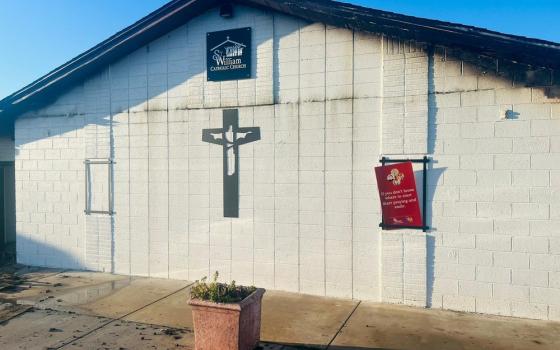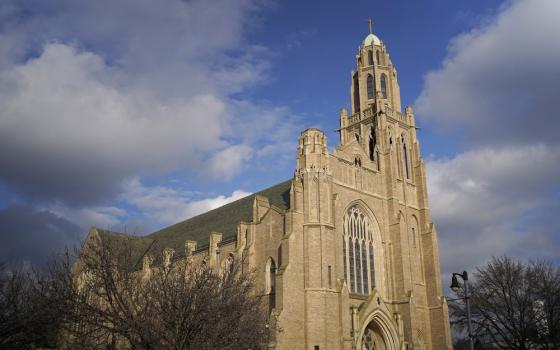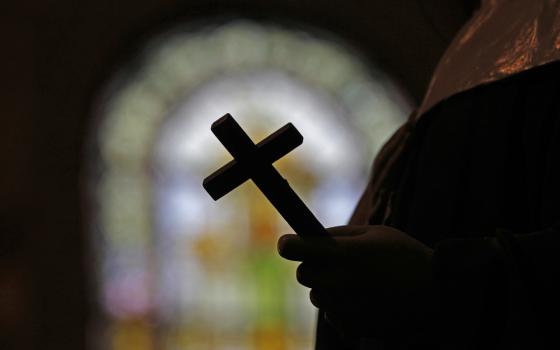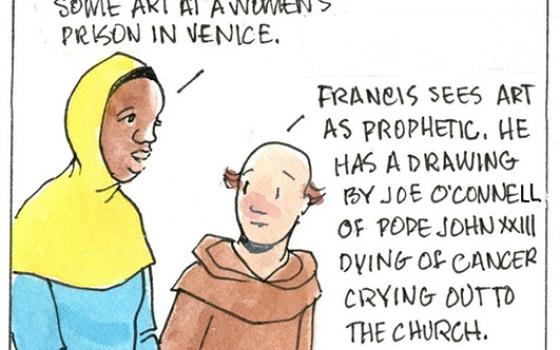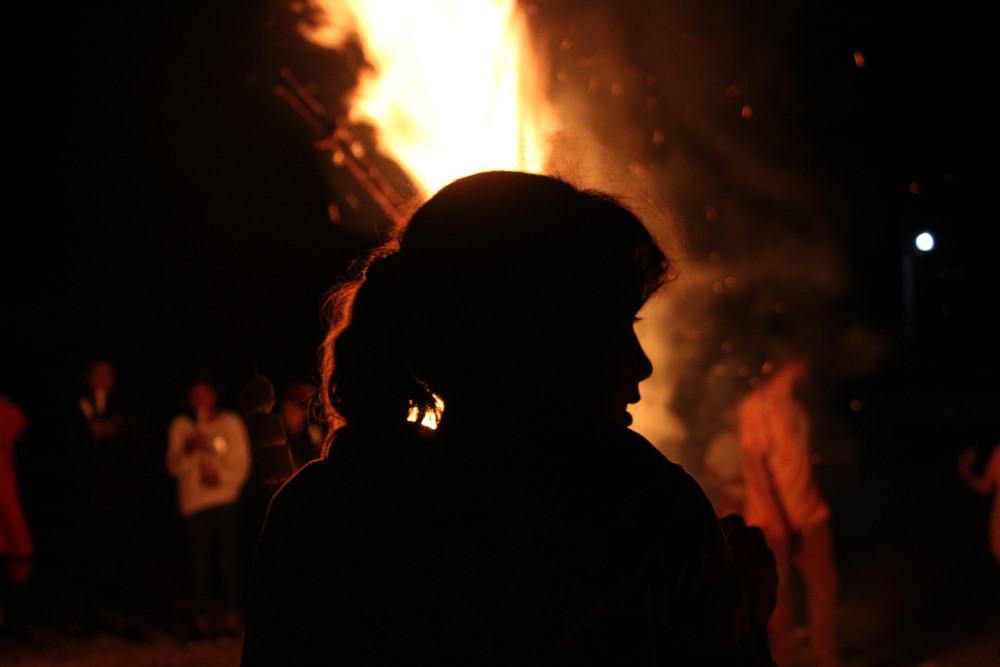
(Unsplash/Amy Contreras)
Thomas Merton has been quoted as saying, "If you want to identify me, ask me not where I live, or what I like to eat, or how I comb my hair, but ask me what I am living for."
That's a terrifyingly intimate question because it forces me to articulate my deepest values. Another disturbing thing about this question: It reminds me of my incompleteness. When I say I am living for something, I admit that I long for more than what I now am, for more than I have and do. It says that I, like the universe, am evolving.
John the Baptist was living for God's promised future. He baptized with water — that is, he tried to clean up the mess his people were in. His message was clear: "Before you come to the river, stop extorting people. If you have an extra shirt or sandwich, give it to someone who needs it!"
Still, John admitted that what he did was only the beginning. It wasn't just for the sake of virtue that people had to clean up their lives; they did it to get ready for something more. John was water; he was waiting for fire.
John's prophecy was a gift of God for the good of his people. It was also a grace that took root in him as a person of faith whose heart and soul yearned for God's promised future.
John said, "One is coming after me who ranks ahead of me." We think of that as prophecy, a promise of what was about to happen. Perhaps on an intensely personal level, John was also speaking of his desire, his longing for what God was trying to bring about in the midst of creation. As the last prophet, John was probably the one with the deepest longing for God's future.
John awakened the desires of his disciples. With him, they began to understand what they were seeking, what they were really living for. John knew that they shared his desire and that, though he could not fulfill it, God could and would.
St. John the Evangelist tells us that John perceived the Spirit of God descending upon Jesus.
Because of that, he could turn to his disciples and say, "Behold the Lamb of God who takes away the sin of the world."
John knew the problems of his day. His mission was to make people aware of the sin of the world. When he saw Jesus, though he knew not how, he was convinced that Jesus would be the light of the world who would bring salvation to the ends of the Earth. By sending his disciples to Jesus, John pointed the way, even if he didn't comprehend the destination.
Today's meeting with John the Baptist invites us to join with Merton and to ask ourselves for what and for whom we live — for what do we long?
Asking those questions demands courage. Longing is not a comfortable feeling or way to live. Longing signifies emptiness; it recognizes our limitations, our awareness of being incomplete.
It's easier to think about our wishes and wants: our favorite food, a winning team, a good grade, a nice car or house, good clothes. Those things are fairly easy to attain, but they don't make any real difference in our life; they quickly prove their shallowness.
Advertisement
On a deeper level, we desire health and life, we long for loving relationships, and for the good of those whom we love. We might regard those as "natural sacramentals," signs or foretastes of the goodness God desires for us. As sacramentals, the objects of our longing can lead us to our depths. But they also bring the danger of becoming goals in themselves, even transforming themselves into idols by becoming the only things we strive for.
Today's presentation of John the Baptist challenges us to discern the difference between the sacramentals and the sacrament. John loved his disciples, but this scene shows him telling them to leave him behind in order to discover what is most important. He knew that water was good, but for them, he wanted fire.
John points us toward the one he called the Lamb of God who can take away the sin of the world. Following the Lamb of God will give us the grace to evaluate the stuff of our lives. As Merton reminds us, some of the stuff, be it house, hamburger or a haircut is ultimately meaningless.
At the same time, the people, things and activities that draw us into the love of God in and with others are sacramentals to be treasured for all they are worth. As we discover their true worth, we become open to the fire that makes every moment of our life matter.
[St. Joseph Sr. Mary M. McGlone serves on the congregational leadership team of the Sisters of St. Joseph of Carondelet.]
Editor's note: Sign up to receive weekly Scripture for Life emails.








